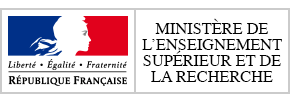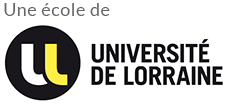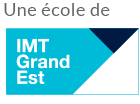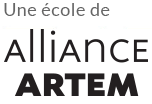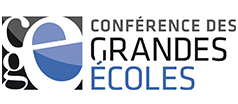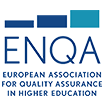By drawing on the findings of laboratories at the heart of society’s issues means being able to offer courses that are up to date with the latest scientific knowledge.
Institut Jean Lamour (IJL) is a basic and applied research laboratory in the science and engineering of materials and processes that brings together scientists from various disciplines. A multi-theme laboratory, it covers materials, metallurgy, plasmas, surfaces, nanomaterials and electronics.
A partner laboratory of the School, Institut Jean Lamour (IJL) is establishing itself as one of the largest European centres in the field of materials. It is similarly pre-eminent in surface engineering and innovative nanomaterials and, last but not least, in the art of numerical simulation of thermonuclear fusion. Its influence in this field has earned it a concrete role in the development of ITER, an international project representing €10 billion over 30 years with the ambition to tame the power of the sun.
Internationally recognised in the field of Information and Communication Science and Technology, Loria has close links with many French and foreign laboratories. Loria, the Lorraine Laboratory for Research in Informatics and its Applications, is a joint research unit (UMR 7503) shared between several institutions: CNRS, the University of Lorraine and Inria. Loria’s mission since its creation in 1997 has been to conduct fundamental and applied research in computer science. Loria is a member of the Charles Hermite Federation, which brings together the three main research laboratories in mathematics and ICST (information and communication science and technology) in Lorraine. The laboratory is part of the AM2I (Automation, Mathematics, Informatics and their Interactions) science cluster at the University of Lorraine. Scientific work is carried out in 28 teams across five departments, 15 of which are shared with Inria, representing a total of more than 400 people. Loria is one of the largest laboratories in the Lorraine region.
Loria’s mission since its creation in 1997 has been to conduct fundamental and applied research in computer science. Loria is a member of the Charles Hermite Federation, which brings together the three main research laboratories in mathematics and ICST (information and communication science and technology) in Lorraine. The laboratory is part of the AM2I (Automation, Mathematics, Informatics and their Interactions) science cluster at the University of Lorraine. Scientific work is carried out in 28 teams across five departments, 15 of which are shared with Inria, representing a total of more than 400 people. Loria is one of the largest laboratories in the Lorraine region.
With its 120 researchers and teacher-researchers, whose skills feed into the school’s teaching, the Institut Elijah Cartan is now one of the most important mathematical laboratories in France.
 Beginning over a hundred years ago, when Élie Cartan arrived as professor at the Faculty of Science in Nancy, mathematics research in Lorraine has a long tradition, marked by a succession of world-renowned figures such as Jean Leray, Laurent Schwartz (Fields Medal 1950), Jean-Pierre Serre (Fields Medal 1954), Roger Godement, Jean Delsarte (secretary of the Bourbaki Group until 1962) and Jacques-Louis Lions. Founded in 1953 on the initiative of Jean Delsarte, the Institut Elie Cartan in Nancy was recognised by CNRS in 1978 (under the name Global Analysis Team) and merged with the Mathematics and Applications Laboratory in Metz on 1 January 2013. The new laboratory is was given the name Institut Elie Cartan de Lorraine (IECL). IECL is a joint research unit (UMR 7502) of CNRS and the University of Lorraine. INRIA is an important and long-standing partner of IECL, particularly through the INRIA project teams we host. The Institut Élie Cartan de Lorraine is one of the great French mathematical laboratories and the largest in eastern France. IECL has a very wide scientific spectrum. In several areas of fundamental mathematics (geometry, number theory), partial differential equations and probability, IECL brings together internationally recognised specialists. This scientific diversity promotes internal and external interaction, contributing to the laboratory’s attractiveness to foreign visitors.
Beginning over a hundred years ago, when Élie Cartan arrived as professor at the Faculty of Science in Nancy, mathematics research in Lorraine has a long tradition, marked by a succession of world-renowned figures such as Jean Leray, Laurent Schwartz (Fields Medal 1950), Jean-Pierre Serre (Fields Medal 1954), Roger Godement, Jean Delsarte (secretary of the Bourbaki Group until 1962) and Jacques-Louis Lions. Founded in 1953 on the initiative of Jean Delsarte, the Institut Elie Cartan in Nancy was recognised by CNRS in 1978 (under the name Global Analysis Team) and merged with the Mathematics and Applications Laboratory in Metz on 1 January 2013. The new laboratory is was given the name Institut Elie Cartan de Lorraine (IECL). IECL is a joint research unit (UMR 7502) of CNRS and the University of Lorraine. INRIA is an important and long-standing partner of IECL, particularly through the INRIA project teams we host. The Institut Élie Cartan de Lorraine is one of the great French mathematical laboratories and the largest in eastern France. IECL has a very wide scientific spectrum. In several areas of fundamental mathematics (geometry, number theory), partial differential equations and probability, IECL brings together internationally recognised specialists. This scientific diversity promotes internal and external interaction, contributing to the laboratory’s attractiveness to foreign visitors.GeoRessources specialises in earth sciences: exploration, exploitation, use of geological resources and impacts on society and the environment. This multidisciplinary laboratory is also interested in human use and management of the soil and subsoil, which clearly positions it as a specialist in environmental risk.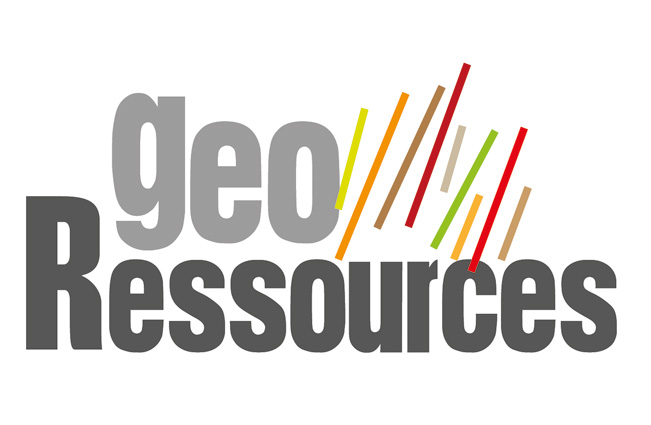 The UMR 7359 GeoRessources laboratory brings together most of Nancy’s applied geology staff from CNU sections 35, 36 and 60 and CNRS sections 18 and 30. GeoRessources is a laboratory of the University of Lorraine, INSU CNRS and CREGU, with a secondary attachment to INSIS CNRS. The number of permanent staff is over 100 (44 ITA/IATOS, 60 CE/C), and the total staff is close to 180. GeoRessources is divided into three research areas (Geomodels, Raw Materials and GeoSystems). The GeoModels area includes two thematic teams, Integrative Digital Geology and Multi-scale Hydrogeomechanics. The Raw Materials area consists of three thematic teams working on Carbon Resources, Mineral Resources and Resource and Residue Recovery. Finally, the GeoSystems area, relating to the human use of geological environments, is divided into two thematic teams: Geological Storage and Geothermics; and Geomaterials, Structures and Risks. GeoRessources is a member of the OTELo OSU, the ICEEL Carnot Institute, Labex Ressources21 and the GéoDénergies IEED. Its teaching staff consists of 20 teacher-researchers from ENSG, 10 from Mines Nancy, 17 from the Geoscience Department and three attached to three other courses.
The UMR 7359 GeoRessources laboratory brings together most of Nancy’s applied geology staff from CNU sections 35, 36 and 60 and CNRS sections 18 and 30. GeoRessources is a laboratory of the University of Lorraine, INSU CNRS and CREGU, with a secondary attachment to INSIS CNRS. The number of permanent staff is over 100 (44 ITA/IATOS, 60 CE/C), and the total staff is close to 180. GeoRessources is divided into three research areas (Geomodels, Raw Materials and GeoSystems). The GeoModels area includes two thematic teams, Integrative Digital Geology and Multi-scale Hydrogeomechanics. The Raw Materials area consists of three thematic teams working on Carbon Resources, Mineral Resources and Resource and Residue Recovery. Finally, the GeoSystems area, relating to the human use of geological environments, is divided into two thematic teams: Geological Storage and Geothermics; and Geomaterials, Structures and Risks. GeoRessources is a member of the OTELo OSU, the ICEEL Carnot Institute, Labex Ressources21 and the GéoDénergies IEED. Its teaching staff consists of 20 teacher-researchers from ENSG, 10 from Mines Nancy, 17 from the Geoscience Department and three attached to three other courses.
The Energetics and Theoretical and Applied Mechanics Laboratory (LEMTA) focuses its research on themes related to mechanics and energy, rational energy use, flow control, the thermomechanical behaviour of materials and biomechanics. LEMTA (UMR 7563) is a joint research unit of the University of Lorraine and CNRS. It is part of the Jacques Villermaux Research Federation for Mechanics, Energy, Processes (FR 2863). It is a host laboratory for the Energy, Mechanics, Materials doctoral school (EMMA). In Saint-Dié-des-Vosges, where it works with the European Centre for Prototyping and Rapid Tooling (CIRTES) and in conjunction with LEMTA, the Mechanics and Plastics Research Team (ERMEP) focuses on modelling the behaviour of shaping tools.
LEMTA (UMR 7563) is a joint research unit of the University of Lorraine and CNRS. It is part of the Jacques Villermaux Research Federation for Mechanics, Energy, Processes (FR 2863). It is a host laboratory for the Energy, Mechanics, Materials doctoral school (EMMA). In Saint-Dié-des-Vosges, where it works with the European Centre for Prototyping and Rapid Tooling (CIRTES) and in conjunction with LEMTA, the Mechanics and Plastics Research Team (ERMEP) focuses on modelling the behaviour of shaping tools.
The Research Team on Innovative Processes (ERPI) has specialised in the study of organisations, whether in the public sphere (quality management, emergence of “governance”…) or in companies (morphology of networks, cooperative coordination…). ERPI is a University of Lorraine laboratory with the “host team” label (EA n° 3767) awarded by the Ministry of Higher Education and Research. ERPI is a member of FR 2863, the Jacques Villermaux Research Federation for Mechanics, Energy, Processes (FR JV), and is attached to the EMPP (Energy, Mechanics, Processes, Products) scientific centre. In addition, this laboratory has a long-standing relationship with ENSGSI (School of Innovation). The ERPI team is dedicated to conducting research in the field of leading and managing innovative processes. ERPI is an industrial engineering laboratory specialising in the study of innovation processes. Its activities involve methods, tools and skills for optimising the management of innovative projects. The ERPI scientific project covers the early stages of the technological innovation process, from when an idea emerges to the phases prior to implementation (digital plans or formulation). ERPI’s approach stands out from the international innovation research landscape by considering the product as an integrated system: the characteristics of the product itself as well as the elements describing the corresponding industrial activity (manufacturing, maintenance, distribution…).
ERPI is a University of Lorraine laboratory with the “host team” label (EA n° 3767) awarded by the Ministry of Higher Education and Research. ERPI is a member of FR 2863, the Jacques Villermaux Research Federation for Mechanics, Energy, Processes (FR JV), and is attached to the EMPP (Energy, Mechanics, Processes, Products) scientific centre. In addition, this laboratory has a long-standing relationship with ENSGSI (School of Innovation). The ERPI team is dedicated to conducting research in the field of leading and managing innovative processes. ERPI is an industrial engineering laboratory specialising in the study of innovation processes. Its activities involve methods, tools and skills for optimising the management of innovative projects. The ERPI scientific project covers the early stages of the technological innovation process, from when an idea emerges to the phases prior to implementation (digital plans or formulation). ERPI’s approach stands out from the international innovation research landscape by considering the product as an integrated system: the characteristics of the product itself as well as the elements describing the corresponding industrial activity (manufacturing, maintenance, distribution…).
The European Financial Economics and Business Management Research Centre (CEREFIGE) is the University of Lorraine’s research laboratory for management science and finance. Its research areas: Finance, Control, Accounting; Strategy, Organisation, Human Resources, Marketing; Institutions and Organisational Dynamics.
 Recognised by the Higher Education Ministry as a “host team” (EA no. 3942), the European Financial Economics and Business Management Research Centre (CEREFIGE) is the University of Lorraine’s teaching and research laboratory for management science. Affiliated with the Legal, Political, Economic and Management Science Centre (SJPEG) and the SJPEG doctoral school (ED no. 79), it is recognised as being rooted in its local environment by all its partners, whether they are academic, institutional or economic. Its premises are located at the Pôle Lorrain de Gestion in Nancy. CEREFIGE aims to organise and promote research in management science in Lorraine. The scope of the research developed at CEREFIGE encompasses all areas of management science: finance, accounting, management control, marketing, human resources management, logistics management, production management, information systems management, strategy, entrepreneurship and SME management, public management, etc. CEREFIGE brings together nearly 130 permanent teaching and research staff members attached to the University of Lorraine or to ICN Business School, about 50 associate members and about 40 PhD students supervised by members of the laboratory.
Recognised by the Higher Education Ministry as a “host team” (EA no. 3942), the European Financial Economics and Business Management Research Centre (CEREFIGE) is the University of Lorraine’s teaching and research laboratory for management science. Affiliated with the Legal, Political, Economic and Management Science Centre (SJPEG) and the SJPEG doctoral school (ED no. 79), it is recognised as being rooted in its local environment by all its partners, whether they are academic, institutional or economic. Its premises are located at the Pôle Lorrain de Gestion in Nancy. CEREFIGE aims to organise and promote research in management science in Lorraine. The scope of the research developed at CEREFIGE encompasses all areas of management science: finance, accounting, management control, marketing, human resources management, logistics management, production management, information systems management, strategy, entrepreneurship and SME management, public management, etc. CEREFIGE brings together nearly 130 permanent teaching and research staff members attached to the University of Lorraine or to ICN Business School, about 50 associate members and about 40 PhD students supervised by members of the laboratory.
The Bureau of Theoretical and Applied Economics (BETA) covers a wide range of activities, including both fundamental aspects and applications of research in economics and management.
 BETA is made up of about 100 permanent staff (professors, research directors, lecturers, research managers, engineers, technicians…), about 50 PhD students and about 50 non-permanent staff (associate members and postdoctoral students). BETA has set up its internal organisation to manage this diversity.
BETA is made up of about 100 permanent staff (professors, research directors, lecturers, research managers, engineers, technicians…), about 50 PhD students and about 50 non-permanent staff (associate members and postdoctoral students). BETA has set up its internal organisation to manage this diversity.
- The administration of the research centres around a research support team composed of administrative, technical and financial staff and led by the laboratory management.
- Scientific activity is organised around five research themes: – Economics of Law – Cliometrics and History of Economic Thought – Creativity, Science, Innovation – Behaviour, Incentives, Sustainable Development – Macroeconomics and Public Policy

